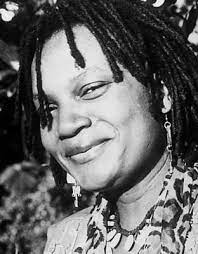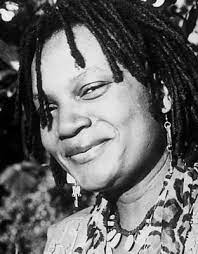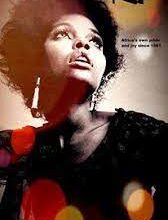Dr. Yvonne Vera (the late) – a multi-award-winning novelist
Walking Down The Memory Lane - Lest We Forget | Zimbabwe Legends - 1ZimLegends

Yvonne Vera

By Tapfuma Machakaire
The lady who regretted dying before completing her book
Renowned Zimbabwean author, Dr Yvonne Vera, is best remembered for her bewildering telephone message to her mother in 2004 as she lay very sick in her bed in Canada. “Mom I am not afraid to die, but I am worried about leaving an unfinished book.”
It might be a misnomer to compare Yvonne’s last words to her mother, with those of imperialist Cecil John Rhodes, who, on his death bed said “So little done, so much to do,” yet in their two different worlds, the two had one thing in common-the zeal not to leave unfinished work.
The two were characters who, instead of worrying about life after death or the myths of heaven and hell, had a purpose in life and felt duty bound to deliver.
Yvonne died before she could complete her book Obedience. Rhodes had wished to complete the Cape to Cairo railway line project before his death.
Vera was born on September 19, 1964, in Bulawayo, in what was then Southern Rhodesia, to Jerry Vera and Ericah Gwetai.
She began her primary education in Tsholotsho communal area where her mothers was working as a teacher. According to The World and I, an international monthly magazine, Vera’s love for books began to emerge before she started her first grade and she began writing when she was still a child. She told the magazine that while in primary school, she remembered leaving notes and poems she often wrote for her mother. In school, other students identified her as ‘the writer. ”
When her mother was transferred to Bulawayo, she went with her to the city where she attended school in the townships of Luveve and Mzilikazi.The move offered a contrast and introduced her to the urban African setting. The contrast between the beauty of the land and the horror of war became a dominant theme in Vera’s writing.
Vera finished her secondary studies in the early years of independence. She was soon to realise that, though the white oppressors had been shaken off, black women were not as liberated as their male counterparts. Zimbabwean women were thus expected to keep things “under the tongue,” to suffer in silence. These are the factors that fuelled Vera’s writing.
After completing her secondary education in Zimbabwe, Vera travelled to Europe and encountered Western art and culture. This motivated her to apply to study at York University in Toronto, Canada where she majored in film criticism and literature, eventually earning a bachelor’s degree, a master’s, and a doctorate.
In 1992’s she penned Why Don’t You Carve Other Animals? Which was collection of short stories.Vera was still living in Toronto when she wrote her first novel, Nehanda, a historical novel based on Mbuya Nehanda’s struggle to lead Zimbabwe out of the clutches of colonialism. Emphasising the importance of documenting Mbuya Nehanda, Brinda Bose, an associate professor at the Centre of English Studies, Jawaharlal Nehru University, India, and the author of several books,wrote in World Literature Today that Nehanda “speaks to both post-colonialism and feminism in the historical context of Zimbabwe.
Vera’s novel Under the Tongue published in 1996 won the Commonwealth Writers Prize (Africa Region, Best Book) in 1997. In year 2000 she published another novel Butterfly Burning, set in Southern Rhodesia during the 1940s, and chosen as one of Zimbabwe’s five best books in 2004. The Stone Virgins, published in 2002highlights the unequal relationship between men and women before and after independence, deliberately breaking thematic taboos and dealing head-on, yet compassionately, with violent and traumatic themes, such as rape, incest, abortion and infanticide.
Her books are translated into several European languages. Vera’s novels are known for their poetic prose, difficult subject-matter, and their strong women characters. They are firmly rooted in Zimbabwe’s difficult past. For these reasons, Vera has been widely studied and appreciated by students of postcolonial African Literature.
She was a key speaker at many international literary events, wrote for a variety of newspapers and magazines, including a column for Swiss newspaper, Die Weltwoche, and presented for television and radio.
She married John Jose, a Canadian teacher whom she had met while he was teaching at Njube in the late 1980s.
In 1995, Vera separated from her husband and returned to Zimbabwe. In 1997 she became director of the National Gallery of Zimbabwe in Bulawayo, a gallery that showcases local talent ranging from that of professional artists to school children. She resigned in May 2003 because of the withdrawal of government funding, an exodus of local artists and a drop in visitors. In 2004, Vera returned to Canada with Jose to seek treatment. She died on 7 April 2005 of meningitis at the age of 40.
She has been described as courageous Zimbabwean writer whose books addressed the taboos of her society.



